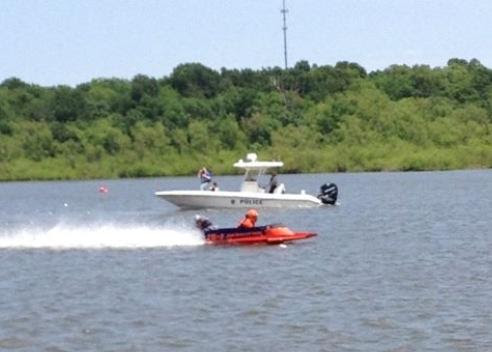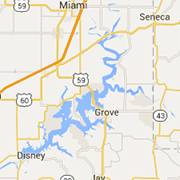Sober Boaters are Safer Boaters

Intense sun, winds, sea spray, vibration, and the rolling motion of a vessel create “boater’s fatigue,” a condition that mimics the effects of being under the influence in persons who are sober. Add in alcohol and/or certain legal and illegal drugs, which reduce sharpness of vision, balance, judgment, and reaction time, and a skipper quickly slips into being incapable of making proper decisions and spotting potential risks. As a portion of boaters have less experience and confidence operating a boat than they do driving a car, impairment can be even more dangerous for boaters than for drivers!
Alcohol use is the leading known contributing factor in fatal boating accidents — where the primary cause was known, it was listed by the U.S. Coast Guard (USCG) as the leading factor in 17 percent of deaths. Yet there still persists an attitude with some irresponsible boat operators that alcohol and boating go hand-in-hand. They proclaim a right to kick back and imbibe, completely disregarding the consequences of their rash behavior. Boaters under the influence gamble with their own safety as well as others aboard; additionally, they threaten everyone unlucky enough to be in their vicinity on the water.
GRDA Police and other marine enforcement agencies are active all boating season to rid the waterways of intoxicated boaters. Boaters suspected of boating under the influence (BUI) will be stopped and arrested, not warned. Operating a boat with a blood alcohol content of .08 or higher is against federal law and Oklahoma state law.
Encounters with law enforcement may take place anytime you are on our lakes and rivers, as police are on the lookout for signs of intoxication day and night. Checkpoints will be set up without warning, and marine officers will administer sobriety tests as deemed warranted. In addition, vessels will be stopped if an officer observes possible violations of the navigation laws or deems a boat to be operating in an unsafe manner. For example, a vessel observed going too fast through a no-wake zone might end up with its operator arrested for alleged BUI.
It is illegal in every state and territory to operate a boat while under the influence of alcohol or drugs. Depending on the jurisdiction, operators arrested for BUI face the same or similar consequences as those arrested and convicted for driving while intoxicated on land, possibly including jail time, loss of operating privileges, and seizure of the vessel. BUI laws pertain to all vessels, from canoes and rowboats to the largest ships. Every arrest incurs the expense of legal defense and a potential loss of wages.
Though not the object of law enforcement, alcohol also poses a danger to passengers. Being under the influence can lead to slips, falls overboard, and other dangerous accidents. It's just not worth the risk!
Shoreline Crew Gets Underway

The new Shoreline Crew began their mission this month. Included on the team are Art Robbins, Luke Barker and Tyler Schlosser. Also pictured are Keet McGuire (rear left), GRDA Boat Mechanic and
Scott Horton (rear right),
GRDA Shoreline Management Compliance Officer.
|
|
|
Back To School
 Ba
Ba
Woodstock on the Water

Thunder Strikes at Wolf Creek



Do you have a Special Event Planned?
PLEASE let us know about your lake or river events so we can provide the resources you may need to make it a positive experience!
2017 Lake Events Schedule
- Woodstock on the Water; August 12, Lawhead Hollow
- Thunder on Wolf Creek: August 18, 19 & 20, Wolf Creek Ramp
- Rush For Brush: August 26, Lake Hudson
- Scenic Rivers Operations Riverfest: September 9, Diamondhead Resort
- 5K Sunset Dam Run: September 23, Disney
Broken Arrow Police Present "Share the Road" Civilian Motorcycle Course
This FREE course is designed to teach experienced riders how to survive riding on our roadways. The course is taught by seasoned, police motorcycle officers that know what it takes to stay safe on a motorcycle!
By attending this course you will learn:
• Effective turning
• Obstacle avoidance
• Braking maneuvers
• Clutch control techniques
• Traffic strategies
• Proper protective equipment
• Motorcycle maintenance

Broken Arrow Police Present "Share the Road" Civilian Motorcycle Course
This FREE course is designed to teach experienced riders how to survive riding on our roadways. The course is taught by seasoned, police motorcycle officers that know what it takes to stay safe on a motorcycle!
By attending this course you will learn:
• Effective turning
• Obstacle avoidance
• Braking maneuvers
• Clutch control techniques
• Traffic strategies
• Proper protective equipment
• Motorcycle maintenance

GRDA








